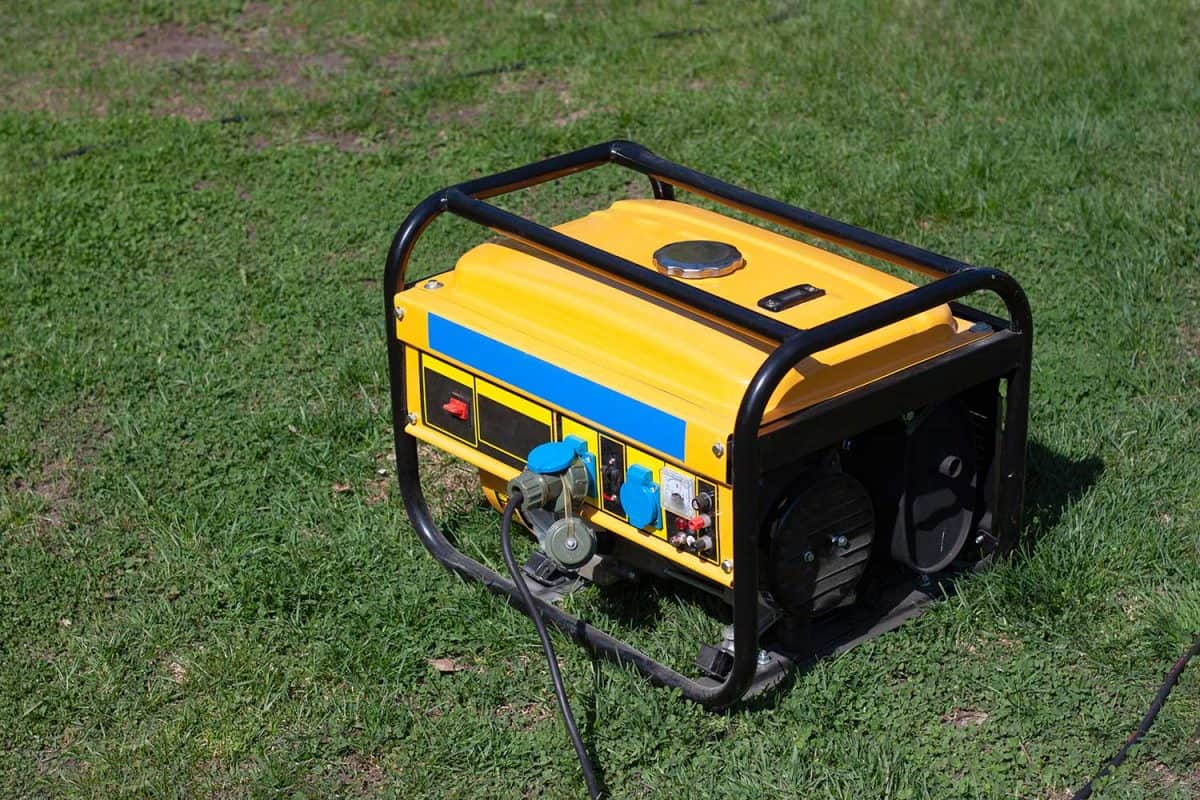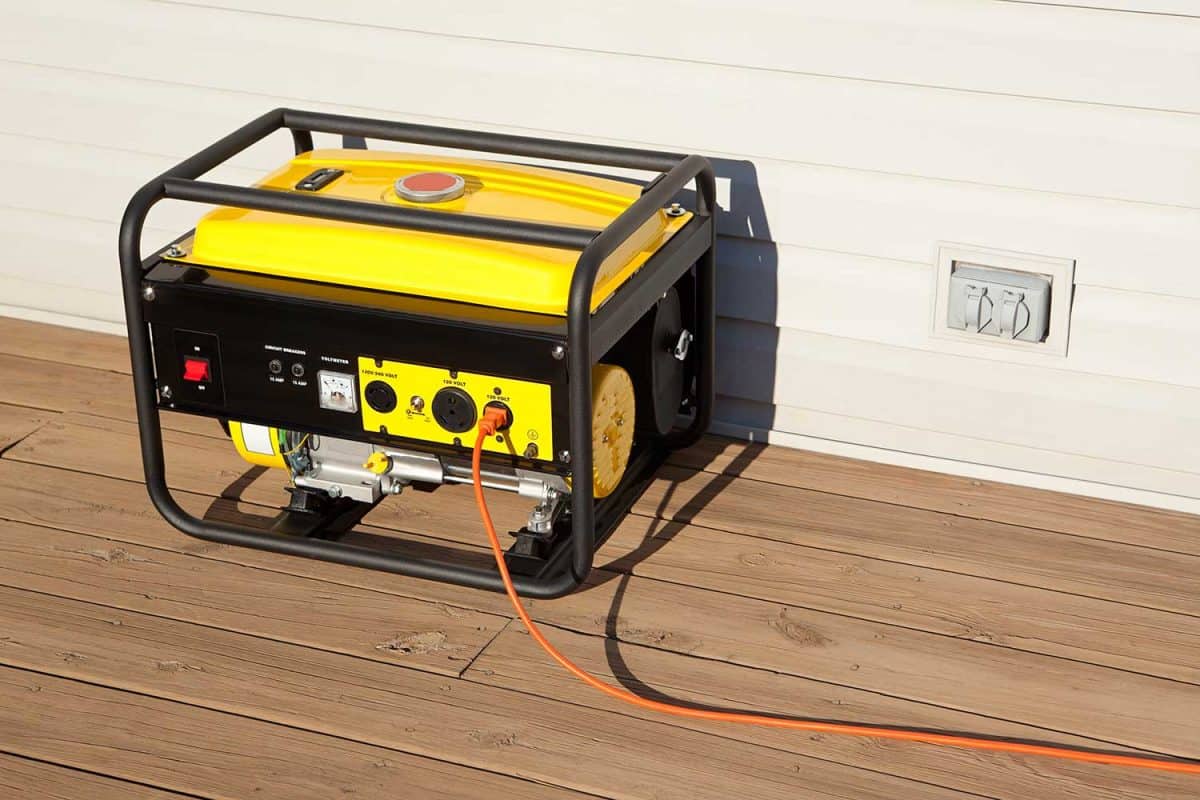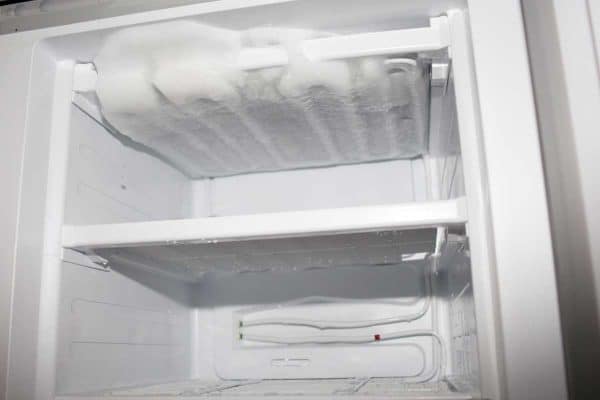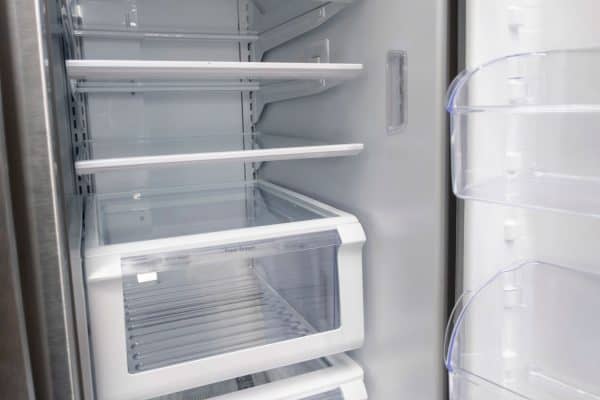It can be very stressful when there’s a power outage as you wait in anticipation for it to be restored. Such an urgent situation requires proactive action to prevent food in your freezer from going bad. We have consulted with the experts to answer how a portable generator is a solution to power your freezer during blackouts and give you peace of mind.
A portable generator is a power backup appliance that continues to run your freezer even after a power outage: preventing your food from spoiling and subsequently saving you money. The generator you should use largely depends on the wattage and size of your freezer, and your generator having enough power to run your freezer and several other electrical gadgets simultaneously.
The most suitable generator to run your freezer is one that has several important qualities that shouldn’t be overlooked in the selection process. Continue reading to learn how to identify such a portable generator for your freezer.
NOTE: WE MAY GET A COMMISSION IF YOU DECIDE TO MAKE A PURCHASE THROUGH THESE LINKS. THERE'S ADDITIONAL NO COST TO YOU. CHECK THE BOTTOM OF THE PAGE FOR MORE INFORMATION.
![A portable electric generator running in the cold winter, Can A Portable Generator Power A Freezer? [And Which Generator To Choose]](https://forfreezing.com/wp-content/uploads/2021/08/Can-A-Portable-Generator-Power-A-Freezer-800x1200.png)
What Size Generator Do I Need To Run A Freezer?
Most homes do not only have a freezer but also a fridge. Thus, a 2000 watt portable generator will be enough to run both simultaneously. It would also work well if you only have a freezer.
But, if you want to run your freezer, fridge, and other appliances like a TV simultaneously, you will need a generator with a much higher wattage, preferably 3400 watts.
Can A 2000 Watt Generator Run A Freezer?
Yes, as mentioned above, a 2000 watt generator is sufficient to run your standard freezer and fridge. However, this may not be enough if you want to run other appliances concurrently with your freezer.
You will need a generator with a higher wattage than 2000 watts to run your freezer and other appliances of your choice. This is to prevent damage not only to your generator but also the other electrical appliances.
What To Consider When Choosing a Generator To Power Your Freezer

When you need a particular generator to power your freezer, you have to identify one depending on the size and wattage of your freezer. In case you want to power more than one appliance with your generator; be sure to get the correct wattage of the generator that can run all your appliances without causing any problems.
features Of A Good Quality Portable Generator
A portable generator is highly convenient when there’s a power outage. It is an excellent choice if you are on a budget, and it does not need any complex installations and can easily be moved around.
The following are the qualities you should look for in a portable generator:
1. Dual-Fuel
This is a generator that runs on either gasoline or propane. It’s an excellent choice for homeowners as one can switch between fuels depending on their availability, causing no problems to the generator.
The prices of the fuel are different. Therefore, you can go for the cheaper fuel or propane, if that fits your budget when you need to use a generator.
2. Energy efficient
The advantage of a dual-fuel generator is that it can run much longer using propane than it would with gasoline. Your generator can run up to 16 hours using gasoline but can run between 150 and 200 hours when using propane.
3. Low Noise
You still desire a comfortable home during blackouts just as much as when there’s power; thus, low-noise generators will not cause any discomfort to your ears as you go about your normal duties.
Wattage Of Your Freezer
It is very safe to run your freezer on a generator, provided it has a watt allowance higher than the watt utilization of your freezer. The two main numbers to consider when deciding on the correct generator to use include: the starting wattage and the running wattage.
The starting wattage for your freezer is the initial amount of power needed to operate it when it is switched on while running wattage is the power needed to run your freezer continuously after it starts operating.
For example, a standard fridge-freezer requires a starting wattage of 1200 watts and 800 watts to continuously run it efficiently. Therefore, this means that you will need a generator with a power of 2000 watts.
Chest freezers, on the other hand, have different wattage requirements. A small 5 cubic foot chest freezer needs 850 watts to start, and 100 watts to run. A 2000-watt generator is up to the task to power this size of a chest freezer.
You can get this starting and running wattage information by checking your freezer manual as they slightly differ one from another. Nonetheless, a general rule is to always use a generator that surpasses the recommended wattage for your freezer. This will prevent any potential damages to your appliance.
The Amount of Power Your Generator Can Hold To Run Several Electrical Appliances Simultaneously
When there’s a blackout, you will not only want to ensure your freezer is still running, but you may also need to use other appliances like your laptop or TV.
In such situations, you will need a generator that can power your freezer and the other electrical gadgets that you also need to run simultaneously. To do this, you have to calculate the total wattage of all the appliances that your generator needs to hold.
For example: How do you calculate the power your generator needs when a blackout takes place during or after a storm and you need to run your freezer together with your water pump, TV, lights, and laptop?
The starting and running wattage for each appliance is as follows:
| Appliance | Starting Wattage | Running Wattage |
| Freezer | 1280 | 400 |
| Water pump | 1100 | 300 |
| TV | 0 | 200 |
| Lights | 0 | 60 |
| Laptop | 0 | 120 |
Pick the Freezer with the highest wattage of 1280 watts and add to the sum of the running watts of the remaining appliances. So, 1280+400+300+200+60+120=1960 watts. This means you can use a 2000 watts generator.
To connect to your generator, start with your freezer. Then add all other appliances one after another, starting with the one that has the highest wattage, all the way to the lowest.
A different type of calculation is required when there are two appliances that are likely to start or surge at the same time. In this case, the freezer and water pump would normally surge simultaneously.
Therefore, we add their starting wattages and add to the running wattage of the remaining appliances: 1280 + 1100 + 200 + 60 + 120 = 2760 watts. This means that a 2000 watts generator would not have enough power to run all the appliances and would require a 2760 watts generator.
Obviously, using a 2000 watts generator to run 2760 watts spells out a disaster. The generator will not produce any power because it will overload, causing it to trip.
Safety Measures to Observe when using a portable generator

Let's say you have chosen your portable generator. Prior to using it, you need to observe the following safety guidelines to prevent any hazards from happening:
1. Avoid Enclosed Or Partially Enclosed Spaces
Do not use your generator inside your house, whether it is in the basement, garage, or crawl areas. Carbon-monoxide emissions from your generator can cause health problems and even death. Instead, place your generator at least 10 to 20 feet away from your home.
2. Avoid Electrical Hazards
Place your generator on a dry surface when using it. Never ever touch the generator when your hands are wet to prevent electrical shock.
Plug your electrical gadgets directly into your generator. Or, you could use an outdoor extension that holds enough wattage equal to the total number of appliances you will be powering, making sure you do not exceed the wattage of your generator. Also, make sure your generator’s electrical cord is free from tears or cuts.
In addition to powering your freezer, never attempt to provide power to your entire house by plugging your generator into an electrical outlet. This is extremely dangerous and presents a high risk of electrocution.
3. Do Not Overload Your Generator
Overloading your generator can cause damage to your appliances as well as the generator itself. Only use a generator whose power is adequate enough to hold all the appliances you need to run.
4. Use The Correct Power Cords
Only use the heavy-duty cords that are rated for outdoors with adequate capacity to power your freezer.
5. Prevent Fire Hazards
Store your fuel in non-glass containers that have been clearly labeled, and in spaces away from your house. Any tiny flame can ignite the fuel. Also, ensure you have a fire extinguisher near your generator, as well as where you store it.
Do not ever attempt to fuel your generator while it is running. Turn your generator off and let it cool down before refueling. Be careful that fuel does not pour on any hot engine parts as a flame could be ignited.
6. Avoid Burns
Touching a hot generator while in operation can burn you. Therefore, never touch it until it has cooled down.
How Many Watts Can Run A Freezer?
The number of watts that run your freezer wholly depends on its size, model, and age. Smaller freezers require a lower wattage. The more modern models require fewer watts compared to their older counterparts.
What Can You Power With A Tailgator Generator?
They are not available in the market today; therefore you are advised to choose another model that can adequately power your freezer.
A Tailgator generator has a maximum starting power of 900 watts and running power of 700 watts. It cannot run an average freezer in your home, as it would require a generator with a higher starting wattage of at least 2000 watts.
In Closing
Power blackouts are inevitable and can sometimes ruin your food if immediate action is not taken. The best solution would be to purchase a portable generator to work as a backup when there’s no electricity.
Your best bet is a durable and high-quality generator that is dual-fuel, produces low noise, and provides power for a long time. To get the most suitable generator to power your freezer, it’s important to determine the wattage and size of your freezer.
And, if you want to run your freezer with other electrical appliances simultaneously, ensure your generator has enough wattage to handle all of them.
Your safety is paramount when using a generator and proper safety guidelines need to be followed to prevent potential harm to you and your family. Also, these prevent damages to your electrical gadgets as well as your generator.
To learn more about a chest freezer and how to troubleshoot when your chest freezers stop after a blackout, check out these articles:
How Long Does A Chest Freezer Last?
Chest Freezer Not Working After A Power Outage – What To Do?



![Woman hand open plastic white container drawer in new refrigerator. How To Put A Freezer Drawer Back In [Inc. For Specific Brands]](https://forfreezing.com/wp-content/uploads/2021/09/Woman-hand-open-plastic-white-container-drawer-in-new-refrigerator.-How-To-Put-A-Freezer-Drawer-Back-In-Inc.-For-Specific-Brands-600x400.png)
How much is the cost
I think your way off with the well pump power requirements. Mine is a 3/4 Hp pump and uses 750 watts, but I was told by an electrician that the starting surge power is about 4800 watts. Also my newer 24 cu ft frig uses only running 170 watts, its an energy efficient model. 800 watts must be older models.